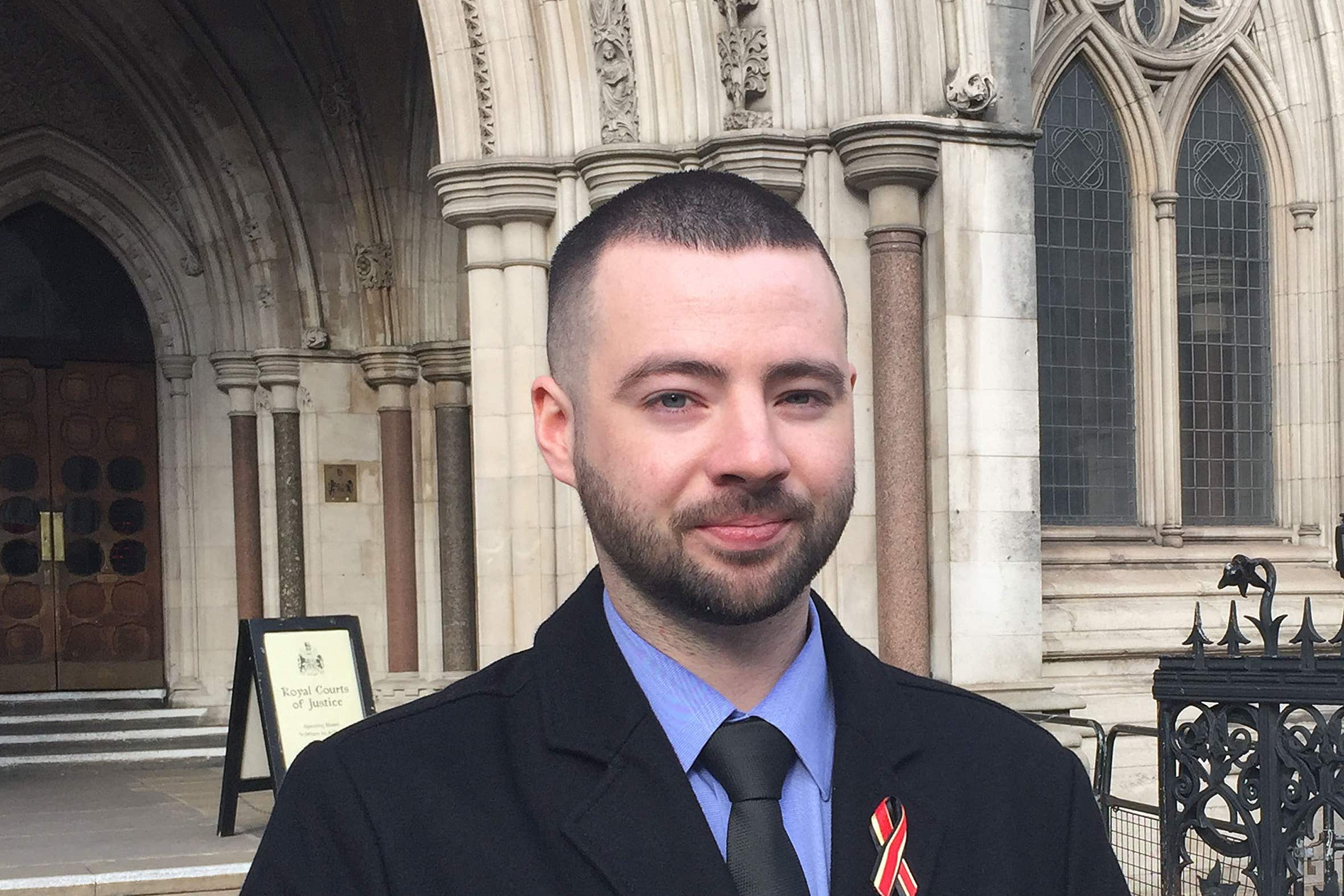Victims of infected blood scandal to receive first compensation payments by end of 2024
More than 30,000 patients were infected with HIV and hepatitis between 1970 and 1991 as a result of the scandal
Victims of the infected blood scandal can receive support scheme payments for life, while those who were subjected to unethical research will get up to £15,000 extra under changes to a multibillion-pound compensation plan.
Some affected people will also be given an increased “social impact” award recognising of the consequences of stigma surrounding the disaster.
Support scheme payments – including for bereaved partners – will continue for life as part of the plan, the government said, as it announced it had accepted the “majority” of recommendations from an independent review.
Victims who were used for research without their knowledge will also be eligible for an extra £10,000, with a higher award of £15,000 for those who underwent treatment as children in a notorious case at Lord Mayor’s Treloar’s College.

Infected people – both living and dead – will start receiving payments through the new framework by the end of this year, while for others affected by the scandal, payments will begin in 2025, the Cabinet Office said on Friday.
It comes after senior barrister and interim chairman of the compensation authority Sir Robert Francis KC made 74 proposals to address concerns with the current compensation plans.
These included an enhanced award for those involved in a “particularly egregious” case of unethical testing at the Treloar school and an increase in the “social impact” payment for some of those affected.
Pupils at the college were treated for haemophilia using plasma blood products infected with HIV and hepatitis, and NHS clinicians continued with treatments to further their medical research despite knowing the dangers, the Infected Blood Inquiry found.
The government said it would also raise the social impact payment for people who are likely to have lived in the same household as the infected person for more than two years.

The accepted recommendations also include provisions for victims to receive independent legal advice to help them navigate the claims process.
Charities and campaigners welcomed such measures but some expressed disappointment at the scope of the changes.
Rachel Halford, CEO of the Hepatitis C Trust, said: “We’re pleased that the government has listened to the concerns of the infected blood community regarding the continuation of support payments for life, which had been a significant source of anxiety for many of our helpline callers.
“We are disappointed, however, that the existing support schemes have not been opened more widely, including to people given hepatitis C after 1991 and those given hepatitis B.
“Thousands of lives were forever altered when people were given hepatitis C and compensation must reflect that reality.”
Jason Evans, who set up the Factor 8 campaign group after losing his father to the scandal aged four, said: “Compensation for those impacted by the infected blood scandal has taken far too long and too many have died waiting.

“Today, the picture of what compensation might look like has become clearer, and now it must be delivered.”
Leigh Day, which represents more than 300 people affected by the infected blood scandal, said they “cautiously” welcomed the announcement but criticised the failure to refer to “the continued disparity in the proposals for funds awarded to those infected with mono-HIV versus mono-HCV infection.”
Paymaster General and minister for the Cabinet Office Nick Thomas-Symonds said: “We know no amount of compensation can fully address the damage to people who suffered as a result of this scandal. This is why alongside the compensation, we must drive forward the wider cultural changes to make sure nothing like this ever happens again.”
The Government has not put a figure on how much the scheme might cost overall, though awards for those at the top end are likely to exceed £2.5 million.
Some 3,000 people across the UK are estimated to have registered interest with the compensation scheme.
Subscribe to Independent Premium to bookmark this article
Want to bookmark your favourite articles and stories to read or reference later? Start your Independent Premium subscription today.


Join our commenting forum
Join thought-provoking conversations, follow other Independent readers and see their replies
Comments